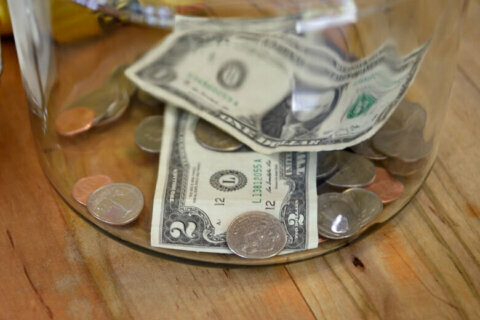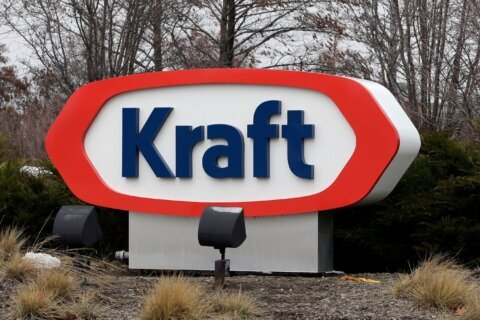
Contactless pay cards may be increasing the risk of credit card theft from RFID scammers. Though experts believe the risk is low, it is another layer of security to be concerned about.
“Each card emits a radio frequency, and criminals have devices where they can read these frequencies and take your card’s information and make purchases that you are not aware of,” John Harwell, at Apple Federal Credit Union in Fairfax, Virginia, told WTOP.
You can safeguard your cards from RFID readers easily.
It may sound a bit paranoid — like putting tin foil around your head — but credit card pocket protectors do just that.
“They put a shield around your card so these RFID readers can’t extract information from your card. They make wallets where you can carry all of your cards and they’re protected,” Harwell said.
And they are cheap. A single RFID-blocking card sleeve can be found for less than a dollar.
But do you really need them?
The type of RFID technology used with a growing number of credit cards is near-field communication, or NFC. That’s the same technology used for mobile wallets, such as Apple Pay and other tap-and-pay applications.
Creditcards.com has predicted half of all U.S. payment cards will have NFC technology within two years. But those communications are encrypted.
“This means fraudsters wouldn’t be able to access your credit card number, billing information or name,” Creditcards.com said. “Instead they’ll get a token they can use only once, and if they do manage to create an unauthorized transaction, you’ll be covered by your credit card issuer’s fraud protection.”
The Identity Theft Resource Center considers RFID card theft a minimal threat, especially compared to other behaviors that leave credit card information at risk.
The center also says there is certainly no harm in protecting your cards in RFID-safe sleeves or wallets, as long as that is not your only line of defense against theft.







